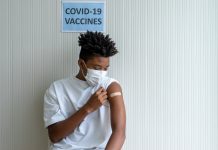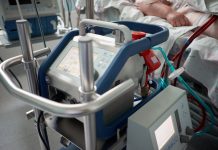The UK will no longer run the REACT study, an 150,000 person analysis of real-time infection, or fund the SIREN study – which monitors COVID levels in healthcare workers
The REACT study, run by Imperial College London on 150,000 people every month, monitored the exact nature of COVID across the UK for the first two years of the pandemic.
In addition, the UK Government will no longer fund the Zoe COVID symptom study, the SIREN and Vivaldi study – examining COVID levels in healthcare workers and care homes – and the CoMix contacts survey.
As the pandemic continues around the globe, it is likely that the virus will continue to mutate and produce variants. In the past, they’ve been tracked. Now, these variants will no longer be monitored with expansive, UK-based data – opening up the possibility of the future unknown.
The SIREN study found out likelihood of reinfection from COVID
The SIREN study looked at reinfection in healthcare workers, alongside antibodies and levels of protection against future infection. Since healthcare workers are at a high likelihood of catching the virus multiple times, the questions asked by this study were extremely important.
The SIREN study revealed some truths that guided policy-making and personal safety.
Firstly, it established that the vaccine begins to protect the body after two weeks, with this level of protection helping to stop the spread of the virus. Secondly, the study found that 83% of people infected with COVID had some protection against reinfection.
Dr Susan, Healthcare Epidemiologist Consultant in Infectious Diseases and Microbiology at Public Health England, said: “By demonstrating an evidence basis for the effectiveness of COVID-19 vaccines, the SIREN study has offered up a big answer to the question of whether the vaccination programme will help end lockdown restrictions: the answer is – in parallel with other measure including maintaining hand hygiene, using face coverings and observing social distancing – a cautious, careful, but optimistic ‘yes’.”
REACT study painted crucial picture of how to fight virus
In a 2021 blog post via the UK Health Security Agency, the REACT study was described as responsible for figuring out “basic things” about COVID. The post further said: “One of REACT’s key achievements has been its’ finding that up to a third of infected individuals exhibit no symptoms but are still able to spread infection to others.”
This post also highlighted an ongoing issue, the disproportionate impact of severe COVID in ethnic minorities.
Writing to ask more people to join the study, the UKHSA said: “we know that some ethnic minority groups continue to suffer worse outcomes from COVID-19, seeing higher rates of infection, hospitalisation and death. If more people from these communities take part, we can understand why this is happening and respond to it better.”
Unfortunately, it seems that the team now won’t have the chance to figure this out.
UK to lose out on policy-informing information about future variants
The study pinpointed demographics hit hardest by COVID, tracked the spread of variants and also gave a big picture understanding of how the virus was evolving. Essentially, it created a data-set of living, evolving knowledge specialised to the UK. While other studies, such as those conducted in Israel or South Africa, gave politicians an insight into what to do, REACT painted a specific picture of real-world information.
Now, the UK Government has announced that it will no longer run this study in collaboration with Imperial College London and Ipsos MORI.
In the 10 March update on data, Kelly Beaver, CEO at Ipsos MORI, said: “REACT has been a vital epidemiological tool over the last two years and we would like to thank the over 3 million people who have taken part across the various studies, for contributing to this incredibly important research.”















